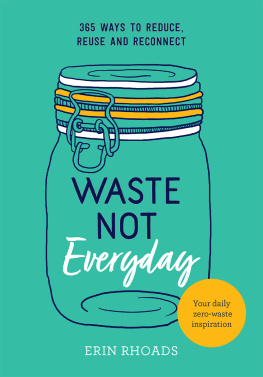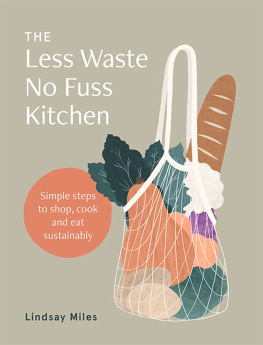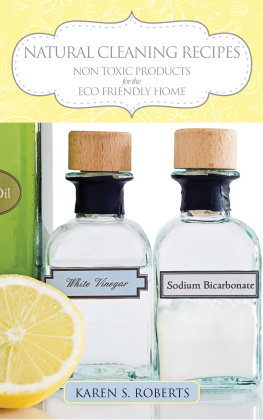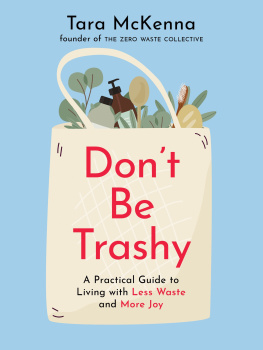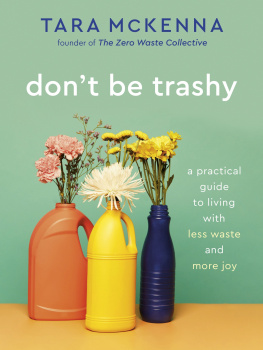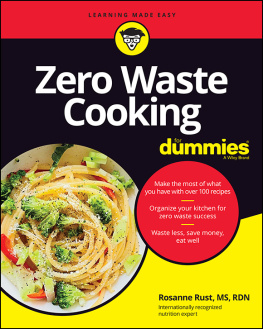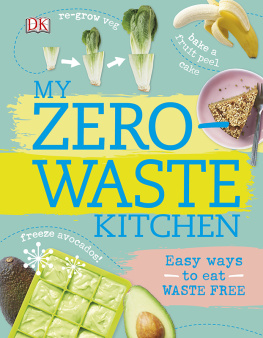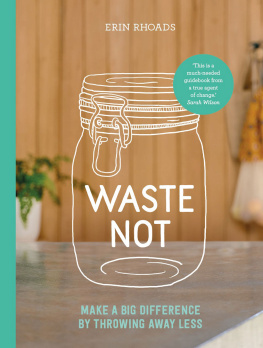Kellogg - 101 Ways To Go Zero Waste
Here you can read online Kellogg - 101 Ways To Go Zero Waste full text of the book (entire story) in english for free. Download pdf and epub, get meaning, cover and reviews about this ebook. year: 2019, publisher: Countryman Press;Norton & Company, Incorporated, W. W, genre: Home and family. Description of the work, (preface) as well as reviews are available. Best literature library LitArk.com created for fans of good reading and offers a wide selection of genres:
Romance novel
Science fiction
Adventure
Detective
Science
History
Home and family
Prose
Art
Politics
Computer
Non-fiction
Religion
Business
Children
Humor
Choose a favorite category and find really read worthwhile books. Enjoy immersion in the world of imagination, feel the emotions of the characters or learn something new for yourself, make an fascinating discovery.

- Book:101 Ways To Go Zero Waste
- Author:
- Publisher:Countryman Press;Norton & Company, Incorporated, W. W
- Genre:
- Year:2019
- Rating:5 / 5
- Favourites:Add to favourites
- Your mark:
- 100
- 1
- 2
- 3
- 4
- 5
101 Ways To Go Zero Waste: summary, description and annotation
We offer to read an annotation, description, summary or preface (depends on what the author of the book "101 Ways To Go Zero Waste" wrote himself). If you haven't found the necessary information about the book — write in the comments, we will try to find it.
101 Ways To Go Zero Waste — read online for free the complete book (whole text) full work
Below is the text of the book, divided by pages. System saving the place of the last page read, allows you to conveniently read the book "101 Ways To Go Zero Waste" online for free, without having to search again every time where you left off. Put a bookmark, and you can go to the page where you finished reading at any time.
Font size:
Interval:
Bookmark:
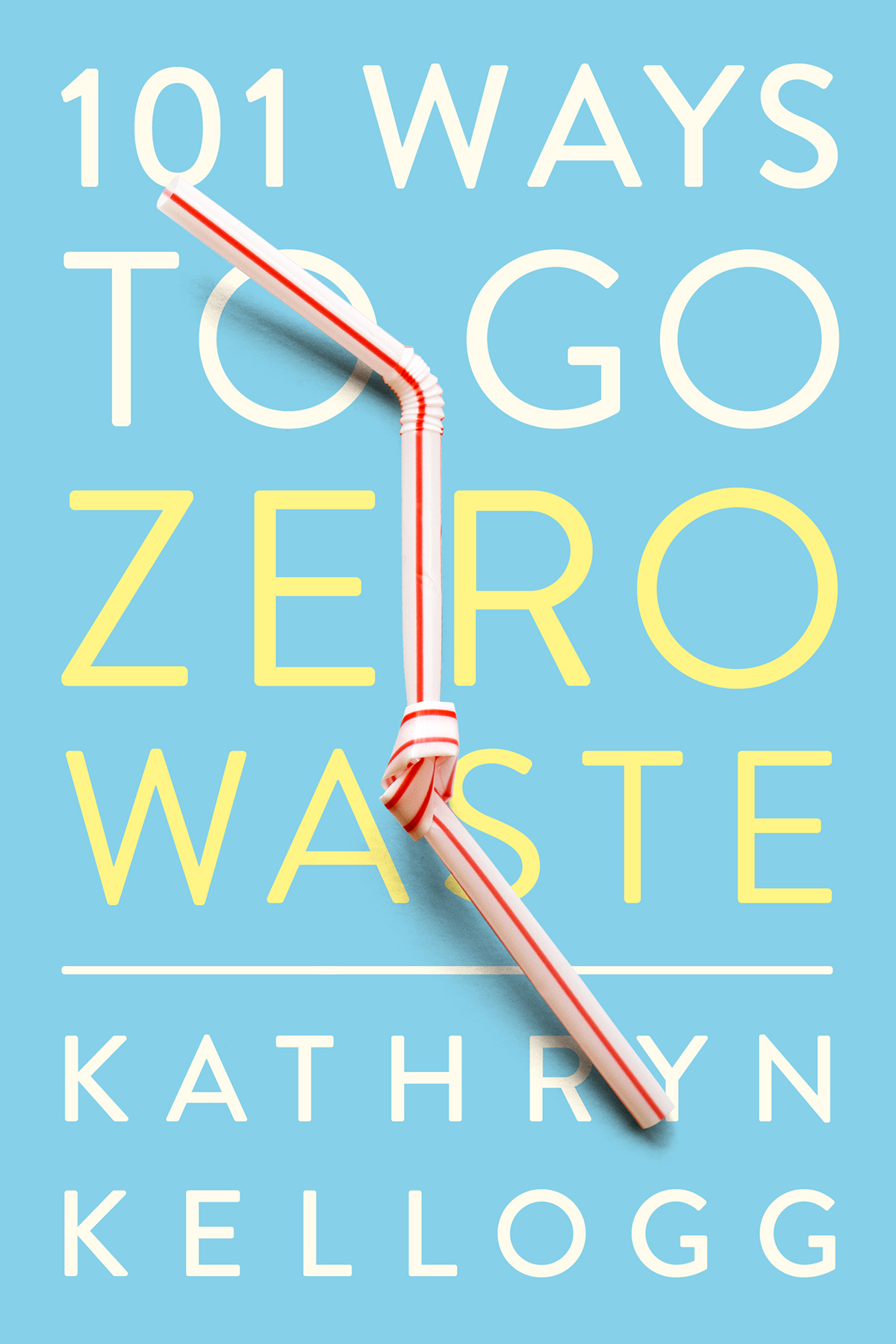

For my grandmother, Nina Jones
CHAPTER ONE
CHANGE STARTS HERE: BEGINNER STEPS
CHAPTER TWO
KITCHEN AND COOKING
CHAPTER THREE
BATHROOM PRODUCTS AND PERSONAL CARE
CHAPTER FOUR
CLEANING
CHAPTER FIVE
BECOMING A CONSCIOUS CONSUMER
CHAPTER SIX
WORK, SCHOOL, AND OUT TO EAT
CHAPTER SEVEN
TRAVEL AND TRANSPORTATION
CHAPTER EIGHT
SPECIAL EVENTS
CHAPTER NINE
ZERO WASTE AND BEYOND
CHAPTER TEN
THE BIG PICTURE
THE ZERO-WASTE MOVEMENT
Have you ever thought about your trash? Take a second and do it now. Think about what you throw away every day. Think about your trash both in and out of the home. Do you get a daily takeaway coffee cup? Are you constantly tossing packaging materials from online purchases? Is your pantry filled with single-use food items? Now, ask yourself, Where does all that trash go? Have you thought about what happens after it leaves your curbside bin? It doesnt magically vanish after it leaves; it goes to a landfill. But, what if there was more to the story?
Consider all of the resources that go into producing the products we buy and all of the packaging that comes with them. When we truly think about all of the stuff we interact with, it becomes clear that some of the best things we can do are buy less, buy consciously, and produce as little waste as possible. The ultimate goal: zero waste.
According to the EPA, the average American sends 4.4 pounds of trash to the landfill every day. We live in a convenience-based society where we often believe that all our problems can be solved with cheap, disposable products destined for the landfill. On average, a piece of clothing is worn 7 times before being discarded, and plastic bags are only used for 15 minutes. Convenience items like coffee cups and paper towels use valuable resources, and our resource supply is finite. There is only so much the Earth can produce. Each year, Earth Overshoot Day marks the point at which weve consumed all of the resources the earth can sustainably produce for the year. In 2018, Earth Overshoot Day was August 1, 2018. Were essentially consuming 1.5 earths in a years time.
Beyond our overconsumption problem, landfills themselves are toxic. Theyre responsible for 16 percent of methane emissions in the US, and methane is 30 percent more powerful than average greenhouse gases like CO2. Because landfills arent aerated for proper decomposition of organic material, the organic matter is stuck in limbo, releasing methane into the atmosphere. Furthermore, toxins from cleaners, batteries, small electronics, and other items that shouldnt be landfilled leach into the soil and can run off into the ocean and groundwater when it rains.
A lot of trash doesnt even make it to the landfill. Instead, it clutters the sides of roads and swirls in the ocean. There are five major gyres in the ocean which are essentially floating landfills. According to the Ellen MacArthur Foundation, theres expected to be more plastic than fish by 2050. Plastic is especially dangerous because it doesnt biodegrade; it photodegrades, which means it gets smaller and smaller, but never goes away. Plastic breaks down so small that according to a recent study by Orb Media, its been found in drinking water worldwide with a staggering 94 percent rate in the US. Bottled water tested positive too, so dont think drinking bottled water is the solutionits antagonizing the problem.
Recycling is great, but unfortunately it is not enough. Theres simply too much recycling to process, and were still consuming way too many resources. Recycling isnt a perfect solution. While it plays into the solution, we have to lessen our dependence on it. Did you know only 9 percent of all plastic is actually recycled? Recycling plants in the US dont process a lot of the materials we send them. Instead, they bale our recyclables and ship them to China. But at the start of 2018, China stopped accepting paper and plastic with a 1 percent contamination rate or higher. To put this in perspective, the best recycling facilities in the US are currently operating at 4 percent contamination level. Contamination occurs when incorrect materials are placed in the bale, or when theres a substance left on the materials, like food residue in a plastic tub or grease on paper. We can easily solve these problems by recycling better! See my guide to recycling like a boss on .
Due to this current recycling crisis, we can expect to see the recycling rate of plastic drop even lower than it is already. Unlike steel, aluminum, and glass, plastic cant truly be recycled. You cant take a plastic water bottle, melt it down, and turn it into a new plastic water bottle. The material loses quality, and it has to be made into a different product like carpet or a fleece jacket. And clothing made from plasticlike nylon, acrylic, and polyesterpresents an entirely new environmental dilemma: the garments shed in the washing machine. A 2016 study from Plymouth University found that one load of clothes can shed up to 700,000 micro-plastic particles into our waterways.
So, theres a reason recycle is last on the list Reduce, Reuse, Recycle. Recycling will not save us. It should not be our first line of defense, but rather a last resort. Im not telling you this to prevent you from recycling, though. Im telling you this so you can learn to recycle better and depend on it less.
Americans buy a lot of unnecessary stuff that we dont really need. We go shopping because it makes us feel good to own something new. Were constantly bombarded by advertisements to buy, buy, buy! We as a society are prone to overspending and overindulging. Often times our purchases are unnecessary and clog up our homes. So before making any purchase, wait. Spend some time to think about whether or not you truly need it. In the following chapters, I will share simple ways to reframe purchases, examining and reducing what you need, and most importantly, tips on how to seamlessly integrate these new practices into your life and daily routines. By reducing what we need, were also reducing what well eventually throw out and how many resources we consume. All it takes is a few simple changes in habit.
This book contains 101 simple tips that focus on reducing and reusing. Ive divided the chapters by topic so you can easily find the tip you need, whether its how to live zero waste at home or work, on the road, or in a store.
The goal of zero waste is to send nothing to a landfill. Reduce what we need, reuse as much as we can, send little as possible to be recycled, and compost whats leftover.
Its not a new idea, but rather a very old one. It hearkens back to depression-era livingthe epitome of frugality, a time in which nothing was wasted. Very little was thrown away because people used what they had over and over again. It stands in stark contrast to our current disposable society where perfectly good items are landfilled just because.
Zero waste is about redefining the system. We currently live in a linear economy where we take resources from the earth, use them for a while, and then dump them in a giant hole in the ground. The goal of zero waste is to move to a circular economy that mimics nature. Instead of discarding resources into a landfill, we create a system where all resources can be resumed fully back into the system for reuse. The goal is to completely write trash out of existence.
Font size:
Interval:
Bookmark:
Similar books «101 Ways To Go Zero Waste»
Look at similar books to 101 Ways To Go Zero Waste. We have selected literature similar in name and meaning in the hope of providing readers with more options to find new, interesting, not yet read works.
Discussion, reviews of the book 101 Ways To Go Zero Waste and just readers' own opinions. Leave your comments, write what you think about the work, its meaning or the main characters. Specify what exactly you liked and what you didn't like, and why you think so.


